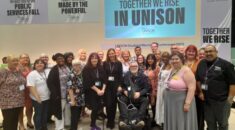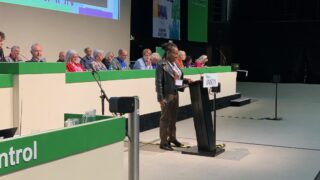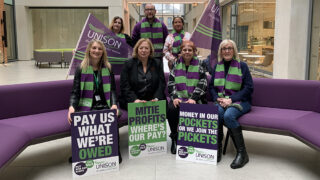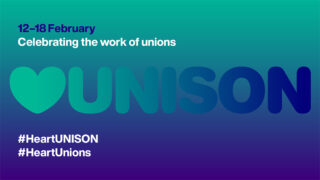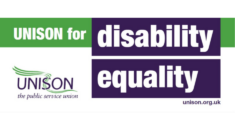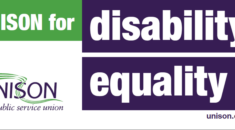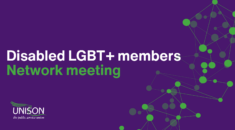Coronovirus has been a massive challenge for all of us. But imagine you are a Deaf public services worker like us.
We’re UNISON members. Iain works for a local council and Gillian works in a hospital. And our first language is British Sign Language.
When coronavirus first hit, many Deaf people were very confused about what was happening. Unlike in Scotland, prime minister Boris Johnson’s daily press conferences haven’t had a live British Sign Language interpreter in the same room.
The BBC news channel provides an interpreter in a box to the side of the screen, but this isn’t on the main news. And it’s not as easy to understand as having an interpreter in the room with the speaker.
Deaf people are often more reliant on Facebook and WhatsApp groups. But these are rife with misinformation – we’ve had Deaf people asking us if they should drink boiling water to stop the virus.
So we’re glad that UNISON has been able to provide guidance in sign language on Deaf people’s rights at work during the pandemic.
Lack of accessible communication has been a big problem for us as Deaf workers.
In Iain’s job, the word suddenly went out that everyone was to work from home. But when you’re Deaf, it’s hard to pick up on the detail without an interpreter to explain any new jargon – around coronavirus, that has meant words and phrases such as ‘shielding‘ and ‘self isolation’.
The government’s Access to Work system has also failed Deaf people in this crisis. It’s designed to provide adjustments for disabled people. In Iain’s case, that means paying to have a sign language interpreter in work. Working at home, he has to use interpreters online.
But Access to Work is still insisting he submits paper copies of the forms to claim the cost of paying the interpreters. It won’t use email or electronic forms. This is ridiculous and causes unnecessary delays.
Gillian works in a hospital for Deaf people. Last week, the government suddenly announced everyone in the NHS had to wear facemasks, which has caused her real concern. Sign language includes facial signals and many people also need to lip read. The government just doesn’t seem to have thought about Deaf and hearing-impaired people at all.
Iain’s employer has now told him that they are likely to be working from home until the end of the year. This fills him with dread.
He is already isolated as a Deaf person. He can’t just pick up the phone and chat to a workmate or relative. He needs an interpreter just for those small social interactions. He’s worried that he will be stuck at home, staring at the same four walls, for another six months.
We recently hosted an online meeting for Deaf UNISON members. Our members reported problems accessing interpreters while at home. The technology is also not in place for them to receive incoming calls, which increases isolation and exclusion.
The explosion in online learning has meant our Deaf members who need to complete mandatory training – for instance, in health and social work – are unable to access compulsory basic training modules.
Deaf people are being left out in this crisis, which is very dangerous.
The government needs to ensure that there are always sign language interpreters in the same room for any emergency announcements, whether it is a pandemic or a hurricane.
Access to Work also needs to become more flexible so that it can respond to changing situations at work. And the government needs to consider the effect of its decisions on all workers, including Deaf workers.
This is why UNISON is calling for a new British Sign Language Act, similar to that already in place in Scotland.
Until we have this, we will continue to feel like second class citizens.
• Deaf with a capital letter indicates people for whom British Sign Language is their first language.


